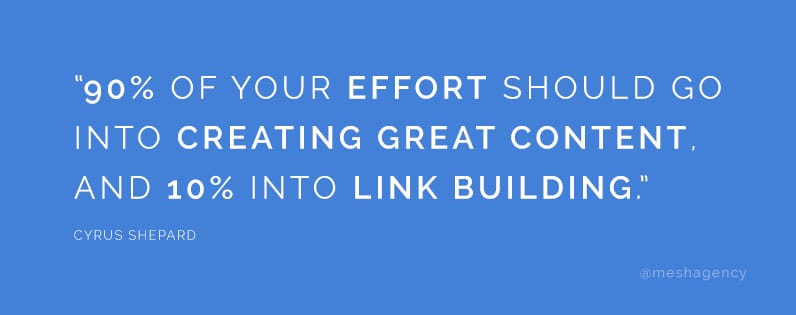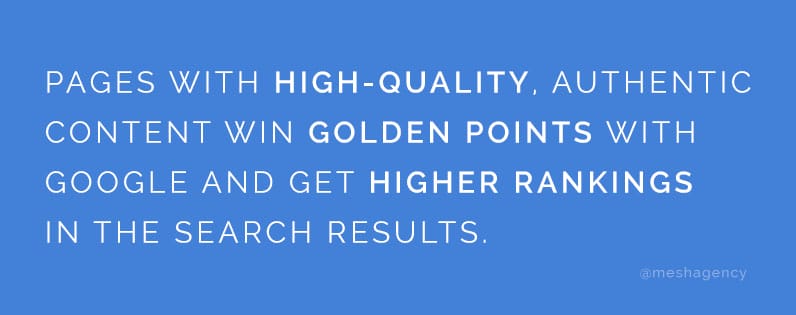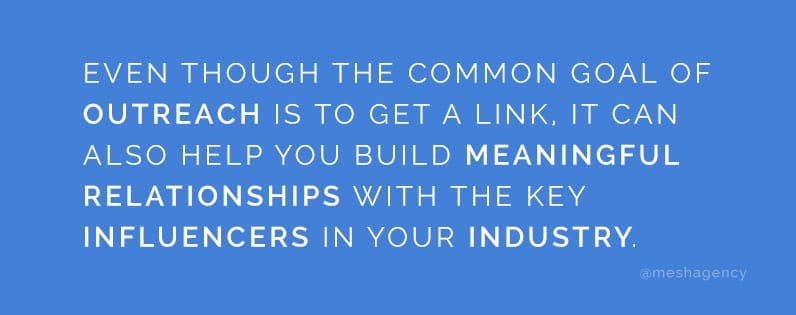Congratulations! You have stumbled upon one of the most comprehensive guides to backlinks and link building on planet Earth.
“Backlinks” or “Link building” are some of the most popular terms in the world of Search Engine Optimization (SEO) today. From digital marketing experts to that new kid who just started his own blog, everybody is rushing to score more backlinks.
So if you are a digital marketer, and your boss just gave you THAT look and asked that ominous question (again!) – “When will we see more traffic?”, then this guide is for you.
Sometimes in SEO, you can do everything right and still, things go wrong. Doesn’t matter how many weeks you toiled away to develop that content strategy— so what if you spent 8 months optimizing your website? All your efforts can still be in vain and your traffic can start dropping.
Maybe you failed to follow through the latest Google update. Maybe you accidentally published plagiarized content on your blog. Or maybe you underestimated the importance of backlinks– this is the one we’ll be tackling today.
In this guide, you will find everything you will ever need to know about backlinks, including:
- What backlinks actually are, and how they can help your online business (or blog);
- How to get them, and build a sustainable link building campaign;
- How to keep an eye out for “bad” backlinks and what to do if you find any;
- How to get high-quality backlinks when you’re a newbie and nobody knows you;
- How you can get “free” backlinks and if they are actually worth it;
Plus a lot of other tools, tricks, and advanced techniques you’d need to build a link plan for your digital marketing strategy like a pro. You’re welcome.
Now since this is a broad subject, and we really don’t want to leave anything out, this is going to be a lengthy post. But in order to not overwhelm you, we’ve broken it up into five blog posts. So, grab a cup of coffee and allow us to formally welcome you to Part 1 of Backlinks 101.
What Are Backlinks?
In the most basic terms, when one web page links to another website or page, that link is called a backlink. These are also known as “incoming links” or “inbound links.” For example, when you publish a post on your website that contains a hyperlink (usually just called a link) to an external website, that link is referred to as a backlink.
Link building or link earning is the process of acquiring such backlinks (hyperlinks) from other websites. This is mostly done through a well-known content marketing technique – publishing a blog post on another website’s blog (guest posting).
When an external website publishes a blog post with a link to your site, that is called link building. The higher the relevance, or domain authority, of that external website is, the more valuable the backlink for your rankings.
In the highly acclaimed book “How to Rank” by Moz, Cyrus Shepard says that “90% of your effort should go into creating great content, and 10% into link building.” – A good content marketing strategy based around these numbers can be highly beneficial to your link building campaign.
Common Backlink Lingo
Before we go further ahead, let’s talk about some common terms related to backlinks you’ll be hearing a lot:
Link Juice: This is non-technical SEO term used to describe the strength or reputation and frequency of backlinks within a web page. Think of it like this – the number of backlinks + the quality of those links = link juice. This link juice helps rank a page and also increases domain authority.
No-Follow Link: When a site links to another site, but the backlink has a “no-follow” tag, that link does not pass link juice. These no-follow links are more or less useless if you’re trying to rank your website. Webmasters use these links if they think they are linking out to an untrustworthy website— for example, links from comments on other blogs.
Do-Follow Link: Links that pass the link juice are known as do-follow links. By default, all links you add to an article or a blog post are do-follow links.
Low-Quality Links: As the name suggests, these are links coming from spammy, scammy, and well, low-quality websites. THIS is the reason many marketers advise against buying backlinks— you never know when you might get a link coming from a harvested website. Google hates these, and you can get actually penalized if you use low-quality backlinks in order to accumulate links quickly.
Linking Root Domains: The number of unique domains that link to your website are called your linking root domains. If numerous backlinks are coming from one single domain, they would be counted as one linking root domain. You can then filter incoming links based on the root domain, and get an accurate overview of your backlink profile.
Internal Links: This is pretty self-explanatory. When you link your web pages to one another, such links are known as internal links, and the process is called internal linking or interlinking.
Anchor Text: That blue clickable text in a hyperlink is referred to as anchor text. It should be relevant to the content of the page you’re linking to.
Okay, now that you have a general understanding of backlinking and basic industry lingo, let’s chat a little bit about quality—because, without quality backlinks, you’re really going nowhere fast.
What Makes For a Quality Backlink?
We’d love to give you a straightforward, no-bull@#$! answer to this. Really, we would. But this is a highly subjective topic. Every SEO expert is going to have a slightly different opinion on this.
However, there are several factors that comprise a quality backlink, and everyone would agree that a link that ticks all of these boxes would be a high-quality backlink.
It’s coming from a “relevant” source
The linking site must be relevant, and the content on that web page must be relevant to the link.
For example, when Google launched the infamous Penguin Update, Search Engine Watch found that every single website that got negatively hit had a “money” keyword as its anchor text for over 60% of its incoming links.
It’s coming from a reliable source
Now it probably goes without saying, but a high-quality link will come from a high-quality site. High-quality = more trustworthy. Search engines use TrustRank and trusted seed websites (like Wikipedia, The Huffington Post, Forbes, etc.) to determine if a site is trustworthy.
If a website is just a few links away from a trusted seed website, it will have a higher TrustRank. Thus, it will have a higher quality of links.
It’s located in a noticeable position on a highly visited web page
In this instance, the position of the link and value of the site it’s on sends a continual stream of targeted traffic your way. This one’s pretty straightforward.
The anchor text matches the keywords you’re trying to rank for
Be careful though; use variations. For example, if you’re trying to rank your website for “loan advice”, in addition to using “loan advice” as anchor text, also use a combination of “advice on loans”, “professional loan advice” and “loan guidance”.
It’s within a piece of content
Content marketing experts often advise on including links early on in the main content; it shows search engines that you consider that link valuable.
It’s surrounded by other backlinks to authority sites
If a backlink to your website is included on a page that also links to high-quality sites, then search engines start to think that your website belongs in the same class as those quality sites. (It’s like when you start hanging out with the popular kids and everybody begins to see you as one too.)
It’s not obviously paid for
This should be pretty obvious. Sure, you can buy a quality backlink and even notice an improvement in your site ranking, but is it really worth the risk? Search engines have explicitly said this time and again, that buying backlinks for improving your site ranking is a black hat practice and thus, a punishable offense…not in a jail-time punishment way, but more of a you-will-never-see-your-site-rank-well-ever-again kind of way.
In addition to these points, links that are difficult to acquire are also considered high-quality. As generic as this sounds, let me explain.
It is very difficult to acquire editorial links from authority websites like, say, The Huffington Post. That’s why they are counted as superior sources by a search engine.
Think about some of the big name websites in your niche. Now think of receiving a link from these websites – this will make Google hold you in a really high regard.
Posting content on other high-quality sites, also known as guest posting, has become the #1 technique to build quality links. In fact, since 2005, there’s been a 112 percent rise in the popularity of guest posts.
Now that you know a bit about good backlinks, let’s talk about bad backlinks.
And What Makes For a Bad Backlink?
If a backlink comes from untrusted and unrelated sources, it’s a bad backlink. For example, if your website is about content marketing tips, and the backlink is coming from a site about poodle dogs, it will be considered a bad backlink. However, if your website is about pet grooming and you have a backlink from a poodle website, that’s probably okay.
Additionally, backlinks from websites that are violating the Google’s Webmaster Guidelines or have been penalized in the past for violating it can have a negative effect on your site SEO.
Okay But Still, Why Are Backlinks Important?
To understand the importance of backlinks and link building, first, you have to understand how backlinks are used by the search engines. You see, Google (and other search engines) use these backlinks to discover and “crawl” new web pages.
Search engines regularly crawl the web pages, meaning they extract the content written on these pages, and add it to their indexes. Once they have indexed the pages they determine if the content quality on indexed pages is good enough to score a good ranking for relevant keywords.
(If you want to learn more about this process, we recommend watching this short video created by Google.)
And since millions of new web pages are being created every day, Google also uses these links to determine the quality of these pages. Pages with high-quality, authentic content win golden points with Google and get higher rankings in the search results.
But hold on— higher quality is not the only criteria search engines take into consideration for ranking you well. They also look at the number of links (backlinks/hyperlinks) directing to that web page from external sites, and the quality of those external websites.
In simple terms, the more high-quality websites with high domain authority that link to you, the more likely you are to rank well in SERPs (Search Engine Results Page).
Are you starting to get why backlinks are important? Good.
There’s more.
How Can Link Building Benefit Your Business?
As discussed above, links are an important part of the equation that search engines use to determine website rankings. In addition to ranking well, there are other benefits to link building that are equally worth mentioning here.
Building Relationships
When you’re trying to build links, you often have to reach out to other relevant blogs and websites in your industry. This outreach is generally a part of your B2B content marketing strategy, where you can promote your content with a blog post or an infographic.
Even though the common goal of outreach is to get a link, it can also help you build meaningful relationships with the key influencers in your industry.
If you play your cards right and create genuinely helpful content, your business can become as highly regarded as the best of them.
Building Your Brand
Good link building not only helps you rank higher but it also helps your brand build authority in your industry. How do you achieve this? One way to do it is through content marketing.
For example, say you are a marketing agency. You can create and publish an authentic piece of content based on industrial data and current service marketing stats, and you will be well on your way to becoming an authority in your niche. Then when you do outreach and try to acquire links to the content, you can show your expertise which will help spread the word about your brand.
Sending Highly-Targeted Traffic
We’ve talked about how good links impact your rankings; now let’s discuss their impact on referral traffic. When a website with high traffic links to your site, it leads to an increase in your site traffic too. If that website is relevant, their traffic is going to be pretty relevant too, which can lead to an increase in sales.
An Important Footnote
Before you go trying to build links, you have to create something of value to build links to. Sometimes you’ll just link to your website’s homepage. But more often than not, you’ll want to link to an article, blog post, infographic, or research report.
Sometimes you already have these valuable resources to start your link building campaign. And if you don’t, you create new material specifically with the objective of link building in mind.
In short, have something worth linking to before you begin building links. Sure, you can build links to not-so-special, low-value web pages, but these links wouldn’t be good and long-lasting.
In Conclusion… (For Now)
Generating quality backlinks has always been a highly effective strategy for getting into the good graces of search engines. The road to creating these links might seem difficult and tedious, but it’s well worth it. If you do it right, rewards of potent leads won’t be far behind. Get it?
Stay tuned for the part two in this series where we’ll reveal how to create those coveted organic backlinks.
If you’re looking for help with link building or more information on backlinks in the meantime, just reach out to us— we’re happy to help.








